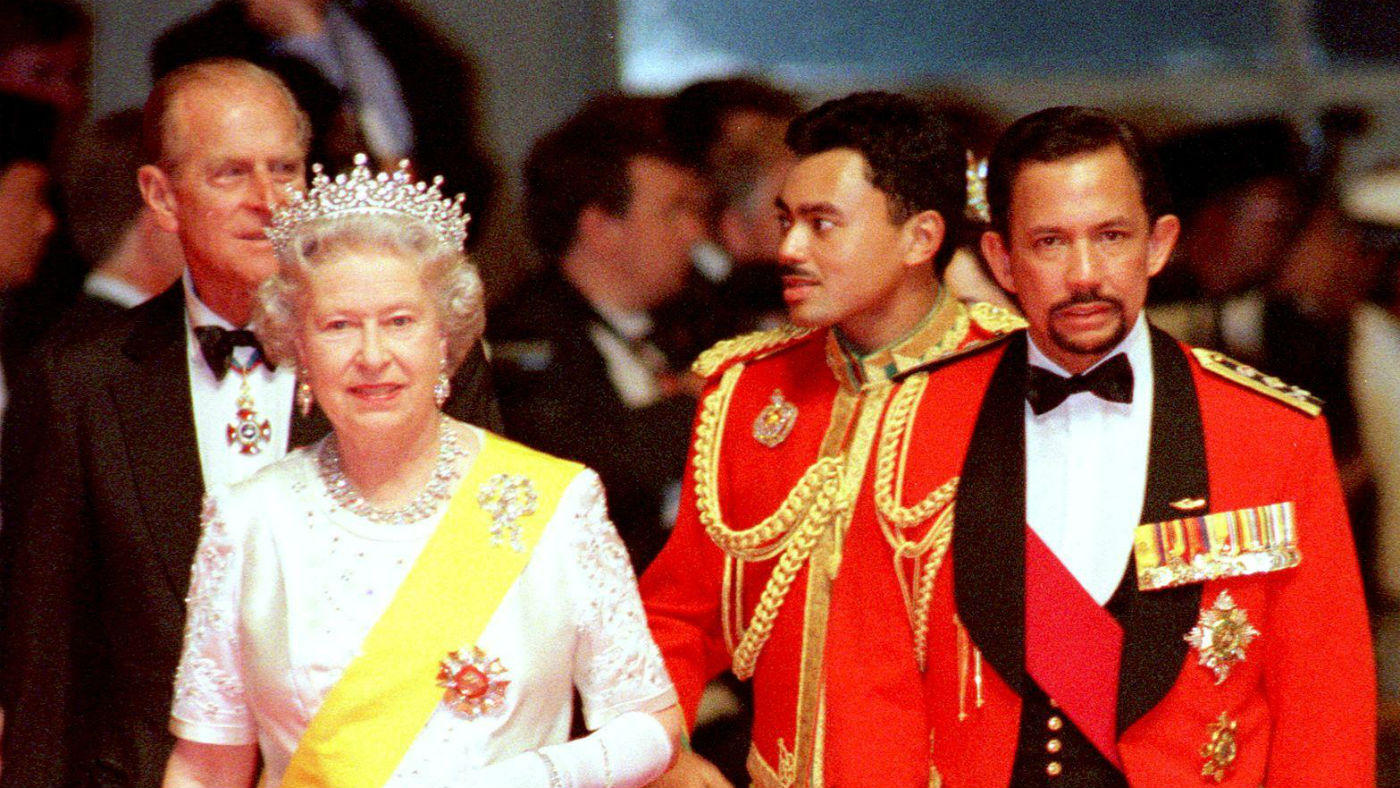Should Brunei be expelled from the Commonwealth?
Labour says it is time to draw ‘a line in the sand’ after new sharia laws introduce death penalty for gay sex

A free daily email with the biggest news stories of the day – and the best features from TheWeek.com
You are now subscribed
Your newsletter sign-up was successful
The government is facing calls to suspend Brunei from the Commonwealth amid growing international condemnation at new sharia laws which introduced the death penalty for gay sex.
Strict new Islamist laws, which include punishments of amputation or death for offences including adultery, sodomy, robbery and rape, came into effect in Brunei on Wednesday, “triggering an international outcry” reports The Independent.
There could be several reasons behind the implementation, but Matthew Woolfe, founder of human rights group The Brunei Project, said it could be linked to Brunei's weakening economy.
The Week
Escape your echo chamber. Get the facts behind the news, plus analysis from multiple perspectives.

Sign up for The Week's Free Newsletters
From our morning news briefing to a weekly Good News Newsletter, get the best of The Week delivered directly to your inbox.
From our morning news briefing to a weekly Good News Newsletter, get the best of The Week delivered directly to your inbox.
“One theory is that it is a way for the government to strengthen its hold on power in the face of a declining economy that could potentially lead to some unrest in future,” Woolfe told the BBC.
“Connected to this is [Brunei’s] interest in attracting more investment from the Muslim world, along with more Islamic tourists… this could be seen as one way of appealing to this market”, although the government might have hoped to get away with the latest roll-out without anyone realising, he added.
Since the story was first broken by Gay Star News on the weekend, numerous celebrities have come out calling for a boycott of hotels owned by the kingdom of Brunei.
CNN says comedian Ellen DeGeneres, tennis star Billie Jean King and actress Jamie Lee Curtis “are just the latest to follow actor George Clooney in condemning the harsh new legislation, urging the public to boycott nine hotels owned by the tiny Southeast Asian kingdom -- three in the United Kingdom, two in the United States, two in France and two in Italy”.
A free daily email with the biggest news stories of the day – and the best features from TheWeek.com
In 2014, when the roll-out of Sharia law in Brunei was first announced, Elton John and Virgin Group founder Richard Branson led calls for a boycott of state-owned businesses and hotels.
Now Labour has gone one step further and called for the foreign office to exert diplomatic pressure on the tiny oil-rich Commonwealth kingdom, and even push for its suspension.
Shadow foreign office minister Khalid Mahmood called the new laws “truly heartbreaking” but added “it is also a clear breach of Brunei’s obligations under the Commonwealth charter in respect of human rights and there surely must be immediate consequences for Brunei if they press ahead of these proposals in terms of membership of the Commonwealth.”
He said the Commonwealth has fought against democratic abuses but it has turned a “blind eye” towards abuses of LGBT people in countries in Asia, Africa and the Caribbean. It was now time to draw “a line in the sand” over LGBT rights abuses, Labour said.
SNP MP Martin Docherty-Hughes also urged the government to consider appealing to the Commonwealth to suspend Brunei, in line with Zimbabwe, which was kicked out in 2002, before withdrawing the following year.
He further raised concern at enthusiasm for “Commonwealth 2.0” by some MPs, pointing out there are 35 states in the group which criminalise LGBT people.
The Commonwealth has been touted as a fertile market for post-Brexit trade deals by the government, and there are concerns economic interest could trump ethical considerations when it comes to dealing with some less-progressive former colonies.
-
 What are the best investments for beginners?
What are the best investments for beginners?The Explainer Stocks and ETFs and bonds, oh my
-
 What to know before filing your own taxes for the first time
What to know before filing your own taxes for the first timethe explainer Tackle this financial milestone with confidence
-
 The biggest box office flops of the 21st century
The biggest box office flops of the 21st centuryin depth Unnecessary remakes and turgid, expensive CGI-fests highlight this list of these most notorious box-office losers
-
 Epstein files topple law CEO, roil UK government
Epstein files topple law CEO, roil UK governmentSpeed Read Peter Mandelson, Britain’s former ambassador to the US, is caught up in the scandal
-
 Iran and US prepare to meet after skirmishes
Iran and US prepare to meet after skirmishesSpeed Read The incident comes amid heightened tensions in the Middle East
-
 Israel retrieves final hostage’s body from Gaza
Israel retrieves final hostage’s body from GazaSpeed Read The 24-year-old police officer was killed during the initial Hamas attack
-
 China’s Xi targets top general in growing purge
China’s Xi targets top general in growing purgeSpeed Read Zhang Youxia is being investigated over ‘grave violations’ of the law
-
 Panama and Canada are negotiating over a crucial copper mine
Panama and Canada are negotiating over a crucial copper mineIn the Spotlight Panama is set to make a final decision on the mine this summer
-
 Why Greenland’s natural resources are nearly impossible to mine
Why Greenland’s natural resources are nearly impossible to mineThe Explainer The country’s natural landscape makes the task extremely difficult
-
 Iran cuts internet as protests escalate
Iran cuts internet as protests escalateSpeed Reada Government buildings across the country have been set on fire
-
 US nabs ‘shadow’ tanker claimed by Russia
US nabs ‘shadow’ tanker claimed by RussiaSpeed Read The ship was one of two vessels seized by the US military